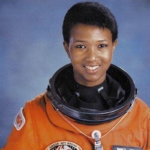
Ann Dunwoody is the first woman to become a Four-Star General in the U.S. military. An incredible accomplishment highlighted in TIME Magazine’s Firsts Edition on Women changing the World.
Here is The General’s Full Interview:
“We want the best and the brightest, male or female.”
I was a tomboy. I loved sports. I was going to be a coach and phys-ed teacher, so joining the Army never really occurred to me, even though I came from this incredible Army family background, with four generations of West Pointers: my brother, my dad, my dad’s dad and my great-grandfather. My older sister became the Army’s third female helicopter pilot.
During my junior year in college at SUNY Cortland, the Army was recruiting women into the Corps after Vietnam. If you qualified, you got a commission as a second lieutenant, a two-year commitment and they paid you $500 a month during your senior year in college—a lot of money back then.
So I said, “I can stand on my head for two years.” I signed up knowing full well that it was just going to be a two-year detour from my coaching and teaching profession.
And then two years turned into five turned into 10 and turned into 38.
My dad was always my hero; a funny, smart leader with a chest full of medals. But I realized later in life that my mom was the real hero, and if I could be more like her, I would be a better soldier and a better leader. So I had a dad who was a mentor and a mom who was the human dimension, who said, “Do the right thing for the right reason and take care of people.”
When they started integrating women into the regular Army, I was into my first year and a half in the military, and that’s when I had the opportunity to go to Airborne School. For the first time, women could have the same career path as their male counterparts.
We took advantage because our challenge was not to let the institution keep us in those cook and nurse slots. I wanted to be a platoon leader—and not a female platoon leader. I wanted to be a platoon leader for men and women.
Throughout my career, I found that we want the best and the brightest on our team, whether you’re male or female. The best athletes, the best shooters. And when you can run faster than the guys, when you can do more pushups, they don’t look at you and say, “Oh, we don’t want you on our team.” They go, “Wow! We want you on our team because we need the best.”
I put leaders in three categories. You have people who are advocates and are impressed with you. These leaders believed in my potential, and they influenced the institutional process to give me opportunities that I would never have had. The next category are patronizers. And you all know them. You might be able to make them into believers but most of them are threatened by either who you are or what you can do. And then there are people who I call detractors that just don’t like you: “This is a man’s world, we don’t need you in here.” But I think many of them can become believers once you’re on their team, and you demonstrate that you’re as capable, committed, dedicated and professional as anyone else.
I’ve never worked for a woman. I’ve only worked for men who either believed in me or didn’t. Fortunately, most of them were advocates for me, and the others I tried to make believers by not lowering my standards. I didn’t look at myself as a woman in uniform. I looked at myself as a soldier.
I was unprepared for the enormity of my nomination to four-star general. I received duffel bags full of mail and many emails from men, women, children and veterans around the world saying how happy they were that this day had finally arrived. And one of the Reserve NCOs who worked with me sent me a letter that said, “General Dunwoody, I’m so proud! I can finally tell my three daughters that they can be anything they want to be, including a four-star general in the Army.”
Watch the interview time.com.





